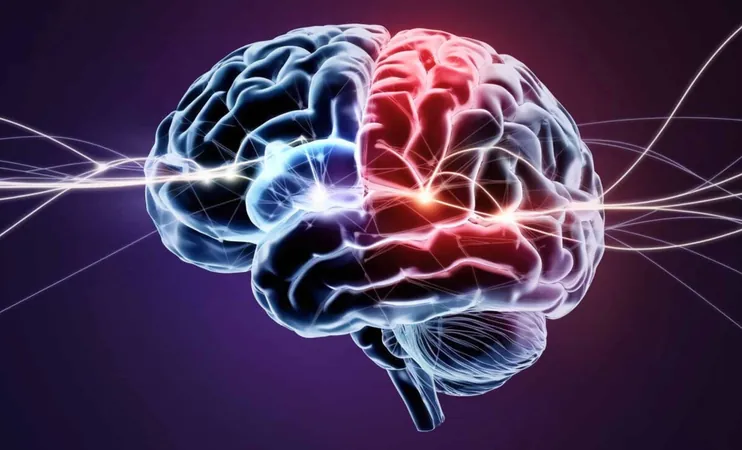
Unlocking the Secrets of the Past: Can We Retrieve Memories After Death?
2025-01-06
Author: Ming
Imagine a world where your memories live on, even after you take your last breath. Sounds like something out of a sci-fi movie, right? However, groundbreaking advancements in neuroscience suggest that the retrieval of memories from the brains of deceased individuals might not be as far-fetched as it seems. While the concept remains largely speculative, researchers are delving into the enigmatic world of our brain’s memory storage, raising crucial scientific, ethical, and philosophical questions along the way.
The Enigmatic Engram: The Key to Memory Retrieval
At the heart of this fascinating exploration lies the engram, which serves as the physical imprint of memories within our brains. Memories are meticulously encoded by intricate networks of neurons, linked together through synapses. This neural connection forms the complex architecture of both our short-term and long-term memories. Initially, memories are encoded in the hippocampus, which later consolidates them into various other regions of the brain.
Neuroscientist Don Arnold from the University of Southern California outlines a theoretical approach for memory extraction that involves several intricate steps: 1. **Identifying Key Neurons**: Pinpointing the specific neurons that encode a memory. 2. **Mapping Connections**: Understanding how these neurons communicate and the synaptic interactions that construct the memory. 3. **Artificial Activation**: Mimicking the natural activation of these neurons to “recreate” the memory.
Arnold stresses that while this method focuses on the engram, it might not fully reconstruct the lived experience tied to the memory itself. The implications of distinguishing between memory retrieval and the actual recollection are profound.
Animal Research: A Window into Memory Manipulation
Scientific inquiries into memory often pivot from animal studies, which have marked significant milestones in our understanding. A pivotal 2012 study in the journal *Nature* revealed that researchers could manipulate a mouse’s memory linked to fear. By pinpointing the neurons associated with a traumatic event, scientists managed to activate these neurons, leading the mouse to recall the fearful experience in a neutral environment.
While this experiment showcases the possibility of influencing memory at the neuronal level, translating these findings to humans poses a myriad of challenges. Human memories encompass a wider spectrum of complexity—filled with abstract ideas, emotional depth, and personal connections.
The Challenges of Human Memory Reconstruction
One daunting challenge in the quest for posthumous memory extraction is the inherent malleability of human memories. Memories can change over time through a process known as reconsolidation, meaning that even if we manage to preserve an engram, the memory extracted could be distorted or incomplete.
Furthermore, memories are dispersed throughout various regions of the brain. Sensory components might be stored in the parietal lobe, while emotional nuances find their home in the amygdala. Reconstructing a cohesive “neural map” of a single memory requires expertise and methodologies that remain much beyond our current capabilities.
Ethical and Societal Dimensions: Navigating the Unknown
The potential for extracting memories from the deceased prompts profound ethical questions. Memories are not mere data; they hold interpersonal significance, entwined with the essence of personal identity and autonomy. Is it ethical to access these private memories without the individual's consent? Regulation would be crucial to prevent misuse, such as for commercial exploitation or legal leveraging.
Moreover, we must consider the psychological consequences for the living. What impact would it have on families who interact with the memories of their lost loved ones, especially if those memories are unreliable or misrepresented? This technology might plunge us into a new realm of invasiveness, where solace from death could be compromised, fueling societal concerns about surveillance and personal privacy.
The world stands on the brink of revolutionary advancements that could challenge the very definition of memory and identity. As science marches forward, we must tread carefully, delving into the past while safeguarding our humanity in the present. What are your thoughts on this thought-provoking topic?


 Brasil (PT)
Brasil (PT)
 Canada (EN)
Canada (EN)
 Chile (ES)
Chile (ES)
 Česko (CS)
Česko (CS)
 대한민국 (KO)
대한민국 (KO)
 España (ES)
España (ES)
 France (FR)
France (FR)
 Hong Kong (EN)
Hong Kong (EN)
 Italia (IT)
Italia (IT)
 日本 (JA)
日本 (JA)
 Magyarország (HU)
Magyarország (HU)
 Norge (NO)
Norge (NO)
 Polska (PL)
Polska (PL)
 Schweiz (DE)
Schweiz (DE)
 Singapore (EN)
Singapore (EN)
 Sverige (SV)
Sverige (SV)
 Suomi (FI)
Suomi (FI)
 Türkiye (TR)
Türkiye (TR)
 الإمارات العربية المتحدة (AR)
الإمارات العربية المتحدة (AR)